FBI Director Christopher Wray just last month told Congress he has instituted reforms in response to FISA surveillance abuses, yet at the same time he appears to have tried to hide the full extent of those abuses under redactions.

Deception by Redaction: More FBI FISA Abuses, This Time Using Fake News in the Washington Post
By Paul Sperry, RealClearInvestigationsAugust 1, 2023 The FBI’s efforts to mislead a federal court in order to wiretap an adviser to the Trump campaign were more extensive than previously repor
The FBI’s efforts to mislead a federal court in order to wiretap an adviser to the Trump campaign were more extensive than previously reported, according to classified documents described to RealClearInvestigations.
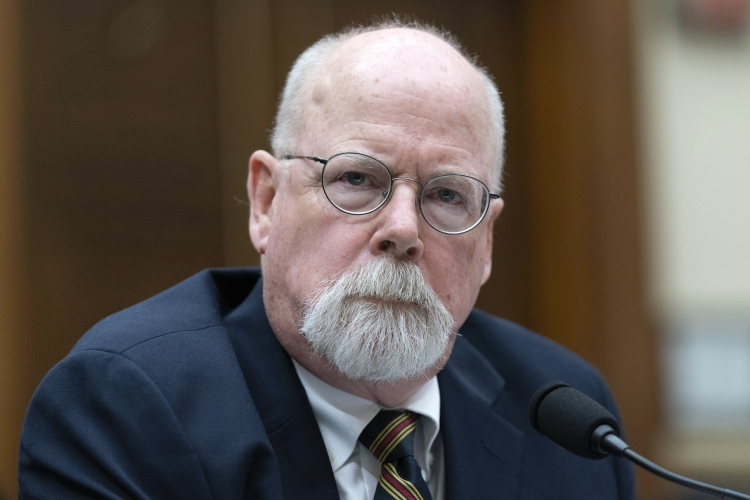
John Durham, special counsel: The FISA abuse that got away...AP
The embattled bureau tried to hide its misconduct by redacting information about its actions under the guise that it involved sensitive intelligence information. RCI has learned that at least some of the redacted material, included in a “Classified Appendix” to Special Counsel John Durham’s final report, has nothing to do with protecting “sources and methods” and other “sensitive” investigative techniques.
Instead, it covers up additional improper behavior by the FBI brass, which initiated and signed off on all four of the Foreign Intelligence Surveillance Act applications to spy on former Trump adviser Carter Page and his contacts within the Trump campaign and presidency in 2016 and 2017.
For example, the FBI tried to justify continuing to spy on Page in early 2017 by indicating to the secret FISA court that it had verified a rumor about Page receiving dirt on Hillary Clinton from the Russian government and facilitating a “well-developed conspiracy of cooperation” with the Kremlin to swing the 2016 election in Trump’s favor. But the bureau had corroborated no such thing. Its source was a front-page report in the Washington Post – one the newspaper later retracted after determining it was false, according to two former U.S. officials who have seen the original, unredacted FISA applications and described the passages to RCI.

Carter Page: More false evidence comes to light.AP
The embarrassing revelation hasn’t been previously reported thanks to redactions blacking out references to the Washington Post article in the still-partially classified applications. The officials confirmed to RCI that the censored section covers up the FBI’s reliance on the bogus Post story, published in March 2017, as purported evidence supporting probable cause to continue spying on Trump’s former aide. In the sections of the FISA renewal applications blacking out references to the Post, the officials said, the FBI claimed the underlying text was “sensitive information.” The officials spoke on the condition of anonymity because they were not authorized to discuss still-classified sections of the FISA warrant affidavits.
The FBI’s references to the Post story are contained in the April and June 2017 FISA applications. These applications were so tainted by bad information, politics, and glaring exculpatory omissions that after an inspector general’s probe, the Justice Department years later had to secretly concede to a federal surveillance court that they were “insufficient” to establish probable cause to spy on Page and therefore “were not valid.”
FBI Director Christopher Wray recently told Congress he has instituted a number of reforms in response to the FISA surveillance abuses, yet at the same time, he appears to have tried to hide the full extent of those abuses under redactions.
An FBI spokeswoman said, “We decline comment on this matter." Attempts to reach Durham, who has closed his office looking into FBI malfeasance, were unsuccessful.
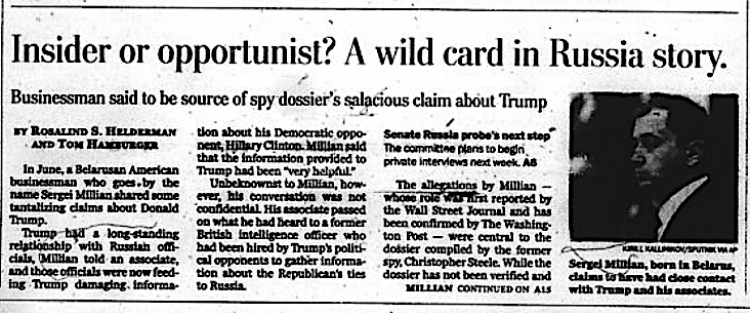
The false 2017 front-page Washington Post story used to continue spying on Carter Page.
Full article here.
Washington Post
This is not the only instance in which the FBI misrepresented unconfirmed news reports to secure authorization to spy on the Trump campaign. The bureau’s FISA applications also referenced a September 2016 Yahoo News account to substantiate the false claim that Page had met with Kremlin officials in Moscow during the presidential campaign.

Sergei Millian: The Washington Post's report about him was unsourced. But that was good enough for the FBI.
sergeimillian.com
That Yahoo article by Michael Isikoff said the allegations had been confirmed by a “well-placed Western intelligence source.” Isikoff later revealed that the source, former British intelligence agent Christopher Steele, had concocted the false allegation about Page in a series of now-debunked memos financed by Hillary Clinton’s campaign. Hence, Steele was “corroborating” his own shoddy work. Instead of following the law and verifying this material before including it in the FISA application, the FBI simply repeated it as fact. In 2018, Isikoff said it was “a bit beyond me” why the bureau referenced his article.
The officials who spoke to RCI said the inclusion of the since-retracted Post story may be even more egregious because it was unsourced, which should have sent red flags flying at the FBI. Post reporters said a key source of the dossier’s allegations was a Belarusian-American businessman named Sergei Millian. The Post, however, provided no source for this blockbuster claim, which Millian vociferously denied.
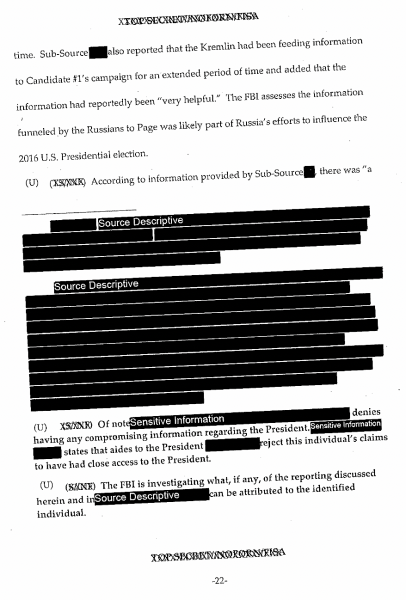
FBI spy application with blacked out falsehoods reported by the Washington Post. More here.
Foreign Intelligence Surveillance Court
The FBI’s reliance on the false Post story was “an act of desperation,” noted one of the officials. In late March 2017, he said the FBI’s Crossfire Hurricane team investigating possible collusion between the Trump campaign and Russia faced a dilemma. A court deadline to reapply for a warrant to spy on Page was fast approaching, and it still hadn’t verified the sourcing for the key “conspiracy” charge against him and the Trump campaign.
Moreover, agents had reason to be skeptical about the information, which formed the cornerstone of their case.
Over the previous two months, the FBI had conducted a series of interviews with Igor Danchenko, a Russia-born Washington-based researcher who helped compile Steele’s dossier of derogatory information about Trump’s alleged ties to Russia, including the core “conspiracy” assertion. During the debriefings, Danchenko confessed he couldn’t be sure his alleged source, Millian, actually told him what he attributed to him about Page in the dossier.

Igor Danchenko, Steele dossier fabulist: The FBI knew that even he didn't believe the dossier's allegation about Millian. But just in time, the Washington Post published its story.
The FBI needed the explosive allegation to be true because it was the heart of the factual information supporting probable cause to electronically monitor Page as a supposed Russian collaborator under the authority of the Foreign Intelligence Surveillance Act. The FISA law, initially enacted in 1978 and broadened in the aftermath of 9/11, is now under intense scrutiny on Capitol Hill in light of previously exposed FBI abuses of the congressionally granted surveillance power. The bureau included the information in earlier requests for wiretaps, but they were set to expire in early April 2017. To justify renewing them another 90 days, the FBI was under pressure to show FISA judges additional evidence to support its suspicions about Page. Validating Millian as the main source of the dossier was critical, but the agents had come up empty, developing no evidence that corroborated the allegations.
Just in time, the Washington Post published a story online on March 29, 2017, that supposedly “confirmed” Millian was the source of the allegations against Page and the core claim of a Trump-Kremlin conspiracy. The strangely unsourced article carried the headline, “Who is ‘Source D’? The man said to be behind the Trump-Russia dossier’s most salacious claim: The story of Sergei Millian.” The next day, the Post ran the same story on Page One of the paper, but under the headline: “Insider or opportunist? A wild card in Russia story: Businessman said to be source of spy dossier’s salacious claim about Trump.” The above-the-fold article appeared just eight days prior to the April 7 deadline the FBI faced to resubmit an application to the FISA court for a fresh warrant to secretly monitor Page.
In its April 7 affidavit requesting a renewal of the warrant, FBI headquarters advised the FISA court that the Post had confirmed that Millian was the source for the dossier’s allegation that the Kremlin was “feeding” the Trump campaign “very helpful” dirt on Clinton through Page. It also cited the article to buttress the dossier’s linchpin allegation of a “conspiracy of cooperation” between the Trump campaign and the Russian leadership, according to the two officials who have seen what is behind the blacked-out section of the sworn affidavit, which runs more than 100 pages. The references to the Post appear on page 22 of the FISA document.

The Foreign Intelligence Surveillance Act is now under intense scrutiny on Capitol Hill in light of previously exposed FBI abuses of congressionally granted surveillance power.
U.S. Judiciary/Wikimedia
As a result, the FISA court renewed the wiretaps. It approved them again on June 29, 2017, based in part on the same supposedly corroborative Washington Post article, according to the two officials, who have also seen the original, unredacted June application. On the strength of essentially fake news, surveillance court judges permitted the FBI to continue to vacuum up all of Page’s communications through Sept. 22, 2017.
The Post was forced to retract its story in November 2021 when Durham proved in a court filing that Danchenko had never actually spoken to Millian and simply invented him as his source -- and therefore made up the “conspiracy” allegation and everything else he attributed to Millian. A week after Durham debunked the Millian hoax, Washington Post Executive Editor Sally Buzbee said the Post could no longer stand behind the accuracy of the story and ordered the newspaper to print a retraction.
But in 2017, the story served the FBI’s purposes, even as agents came to doubt the Millian sourcing because of Danchenko’s dissembling (yet, agents nonetheless swore to the FISA court that Danchenko had been “truthful and cooperative”). Headquarters had to hang on to the slim chance it could be true because the Millian-sourced allegations were central to their case for spying on the Trump campaign. Without them, the case would have collapsed. Former FBI officials say it’s highly unlikely the bureau would have been able to convince the spy court to continue to grant permission to monitor Page.
The FBI also relied on other allegations sourced to Millian as both “Source E” and “Source D” in the Steele dossier, including the made-up story that Russian President Vladimir Putin had a compromising sex tape of Trump cavorting with prostitutes in a Moscow hotel. The entire dossier turned out to be a series of invented rumors or outright fabrications that the FBI knew at the time were underwritten by the Hillary Clinton campaign as political opposition research.
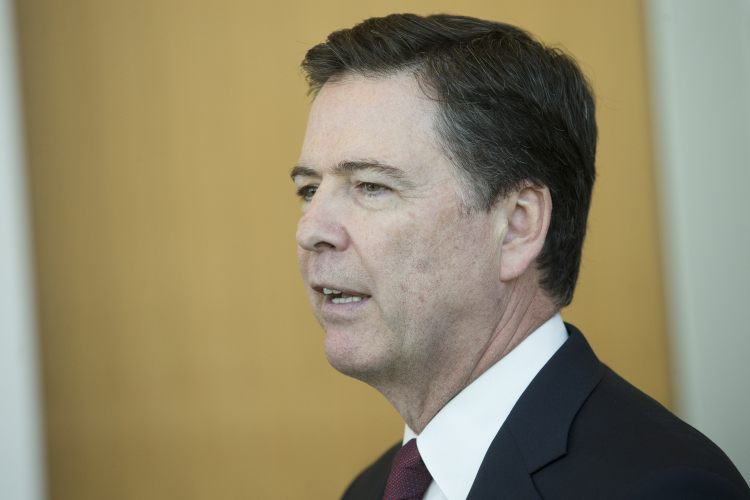
James Comey, former FBI chief: An ex-G-man says Comey's arrogant, "hand-picked bunch at headquarters" relied on "erroneous and tainted information from Washington reporters rather than a traditional, responsible investigation gathering the facts.”
AP
FBI veterans who have sworn out affidavits for FISA wiretaps told RCI they have never known the bureau to cite media stories as evidence to corroborate leads or support probable cause to obtain such all-invasive warrants from the spy court.
“Absolutely not,” said former assistant FBI Director Chris Swecker. “I signed scores of FISA orders as they moved up the chain of command from the field office up to headquarters for final approval. None of them included that type of information, which is absolutely malpractice and incompetence, or worse.”
“Never, ever, ever,” added 27-year FBI veteran special agent Michael Biasello. “The FISA verification process known as the Woods Procedures was created to eliminate this problem, but [then-FBI Director James] Comey’s hand-picked bunch at headquarters did not follow them. They were a bunch of arrogant investigators relying on erroneous and tainted information from Washington reporters rather than a traditional, responsible investigation gathering the facts.”
Biasello said resorting to using such a murky newspaper story to backstop the main thrust of the FBI’s surveillance case suggests its case was more of a political fishing expedition than a legitimate national security matter. He added that the FBI and DOJ are now trying to cover up the full breadth of their FISA scandal through unjustified redactions and classifications.
The FBI and DOJ refuse to fully declassify the documents, which Senate Republicans managed to release to the public in 2020, albeit with large sections blacked out. Whole pages of the renewal applications remain secret, even though the Foreign Intelligence Surveillance Court invalidated the warrants in the wake of a scathing 2019 inspector’s general report. The IG found the spy warrants were based on allegations fabricated by Clinton-funded researchers and had omitted exculpatory information proving the innocence of Page, a former U.S. Navy lieutenant, whom the FBI knew was working for U.S., not Russian, intelligence.
Special Counsel Durham did not uncover what’s lurking beneath the FISA redactions in a recently released report of his four-year criminal investigation of FBI misconduct in the Russiagate probe. He explained that because of the “sensitive and classified nature” of certain “portions” of the FISA applications, he was compelled to discuss them only in a Classified Appendix to the report. He said the classification effort was “coordinated” with the FBI.
In other words, much of the FBI’s wrongdoing remains shielded from public view.
Unusual Handling by Washington Post
The way the Post corrected its story was highly unusual.
Tom Hamburger, Washington Post: Shared 2018 Pulitzer.
Twitter/@thamburger
Instead of appending a correction, the paper, which won a Pulitzer Prize for its Trump-Russia reporting, removed all references to Millian as the dossier’s source in online and archived versions of the original article, including all citations cataloged in the Lexis-Nexis database of news articles. It also took down a video that accompanied the story. The paper then reposted a new article with a different headline – “Sergei Millian: High-level access to Trump or unwitting bystander?” – but under the same bylines of Tom Hamburger and Rosalind Helderman, who shared the controversial 2018 Pulitzer (although the Millian article was not part of its entry).
The new version of the story contains an “Editor’s Note” noting the date when the original was published, but oddly, it does not link to it. In a story the Post ran reporting on its “unusual step of correcting and removing large portions” of the article, it also failed to link to the original version of the article and only linked to the retooled one. The original version has been scrubbed from Google and Twitter.

Rosalind Helderman: Also shared 2018 Pulitzer. With her from left on Pulitzer Day, Washington Post Publisher Fred Ryan, Executive Editor Marty Baron, National Security Editor Peter Finn.
AP
Journalism historians say they are not aware of another major newspaper making wholesale changes to a story four years afterward and republishing an edited version of the story.
In a statement to RCI, a spokeswoman for the Post shrugged off criticism. “The Post handled this correction with complete transparency,” said Kathy Baird, the paper’s chief communications officer. "As you can see in the Editor’s Note, portions of the story and an accompanying video were removed and the headline was changed,” she added. "This is consistent with the principles and practices we follow when issuing corrections for our readers so that all published information is up-to-date and accurate."
Another curious aspect of the story is how it got through Post editors without any sourcing or attribution. Normally such a sensitive story, which potentially libeled Millian, would require intense scrutiny, if not a legal review.
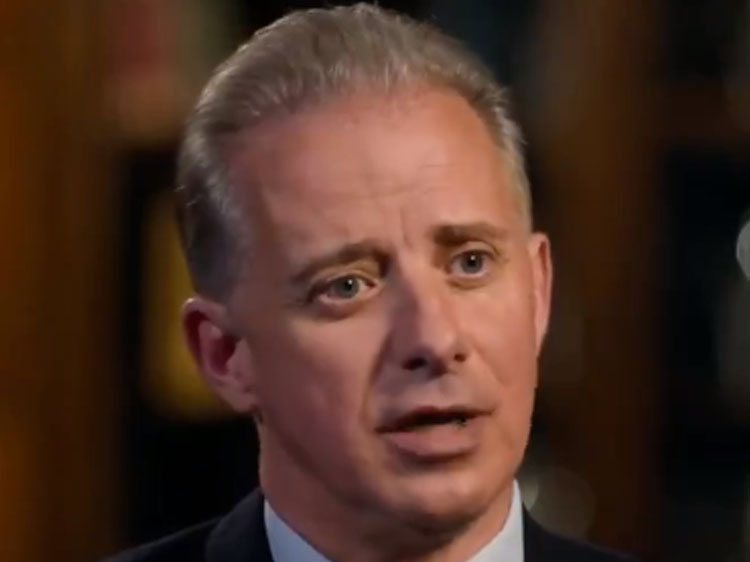
Christopher Steele, Hillary Clinton-paid agent and dossier compiler: “The liberal press never printed my statements,” Sergei Millian said. “They all just went along with Steele’s lies.”
RCP
Millian shared emails with RCI showing he tried to steer the Post reporters off the story, insisting it was “a vicious lie” and a smear campaign against him and the incoming Republican president. But the newspaper nonetheless reported he was the source for the most explosive parts of the dossier and never printed his rebuttals at length after reaching out to him by email. The Post did note that Millian denied in a Russian TV interview having “any compromising information” about Trump, and that Trump aides “vehemently” rejected claims Millian had close ties to Trump. (The Post’s description ‒ “vehemently” ‒ appears in the FBI’s application, the two officials told RCI, but the word is hidden under a redaction, the only word blacked out in the sentence. There is no explanation provided for censoring “vehemently” in the document, but the officials posit the FBI was worried it would too easily connect to the Post story if left unredacted.)
“The liberal press never printed my statements,” Millian said. “They all just went along with Steele’s lies.” After the Post story ran, Millian said he demanded retractions from the paper, arguing its article was “reckless” and “defamatory,” but the Post refused to retract it or run a correction or clarification until November 2021, when Durham exposed the lies in an indictment.
“After I demanded the Washington Post to retract, they informed me that they believe their source and will not delete the story,” he added. “I asked who is their source? They did not answer who.”
Whoever it was, the Post had great faith in it and felt confident enough in its authority to run a story without citing any sources to back up its supposed scoop that Millian was behind the most explosive claims in the dossier.
Did it come from the FBI or officials working with the FBI? Again, the Post and FBI are mum. “We do not disclose information on our sources,” the Post’s Baird said. However, the Post was talking to federal investigators at the time.
On April 11, 2017, just four days after the FISA warrant was re-approved, the Post broke the story about the FBI surveilling Page under the headline, “FBI obtained FISA warrant to monitor former Trump adviser Carter Page,” and attributed the story to “law enforcement and other U.S. officials.” It added: “This is the clearest evidence so far that the FBI had reason to believe during the 2016 presidential campaign that a Trump associate was in touch with Russian agents,” helping the FBI justify its unprecedented investigation of the Trump campaign.
Current FBI Director Wray has said the bureau “regrets the errors and omissions” in the FISA applications, and he has promised to reform how agents seek such warrants under the spy program. In the meantime, Wray has been lobbying Congress to renew FISA authority before it expires at the end of the year, arguing it’s a critical tool for protecting Americans from foreign terrorists and spies.
Comey: Applications 'as Thick as My Wrist'
But critics on the Hill warn the FBI is also using the tool for political purposes.Lawmakers note the FBI knew it was highly unlikely that Page could be a threat to national security because he had previously helped its counterintelligence agents capture and imprison a real spy from Russia. Page even helped the CIA monitor Russia. The FBI withheld from the court Page’s history of cooperating with U.S. intelligence ‒ and even illegally doctored a CIA email to show otherwise. So why the apparent frame-up? Internal text messages suggest key headquarters officials pushing for the FISA wiretaps, including the official who led the Crossfire Hurricane investigation, Peter Strzok, were biased against Trump and were motivated to “stop” him from becoming president. They also developed an “insurance policy” in case he won. Maintaining wiretaps that would allow headquarters to eavesdrop on political communications well into Trump’s presidency might have been part of that policy.
Civil libertarians say FISA judges can be easily manipulated by politically biased or corrupt agents because of the special way the court is set up.
The powerful Foreign Intelligence Surveillance Court that authorizes the FBI to intercept the communications of suspected threats – including U.S. citizens like Page – is highly secretive and opaque. Unlike other federal courts, it lets agents petition judges to monitor targets without defense lawyers present. So FISA court judges hear only the government’s side of the case, inviting the kinds of abuses witnessed in the Trump probe.
Page was never charged with espionage or any crime. He told RCI that he has received “numerous death threats that directly resulted from the false allegations” that he was a traitor.
The FBI would not say if it has sequestered the 11 months of intercepts it collected from Page so agents cannot misuse the private information.
Wray’s predecessor, James Comey, approved the first three FISA warrant applications to spy on Page before he was fired by President Trump in May 2017. Speaking at an FBI conference just five months before he okayed the initial October 2016 FISA application, Comey claimed he took great pains to avoid abusing such surveillance powers.
“Every morning I review the stack of requests that we’re about to send to the federal court to seek permission to wiretap people ‒ for a limited period of time ‒ in our national security investigations,” Comey said in May 2016. “Those applications are often as thick as my wrist or thicker. It is a huge pain in the neck to get permission to bug somebody in the United States, and that’s the way it should be. That’s constraint. That’s oversight.